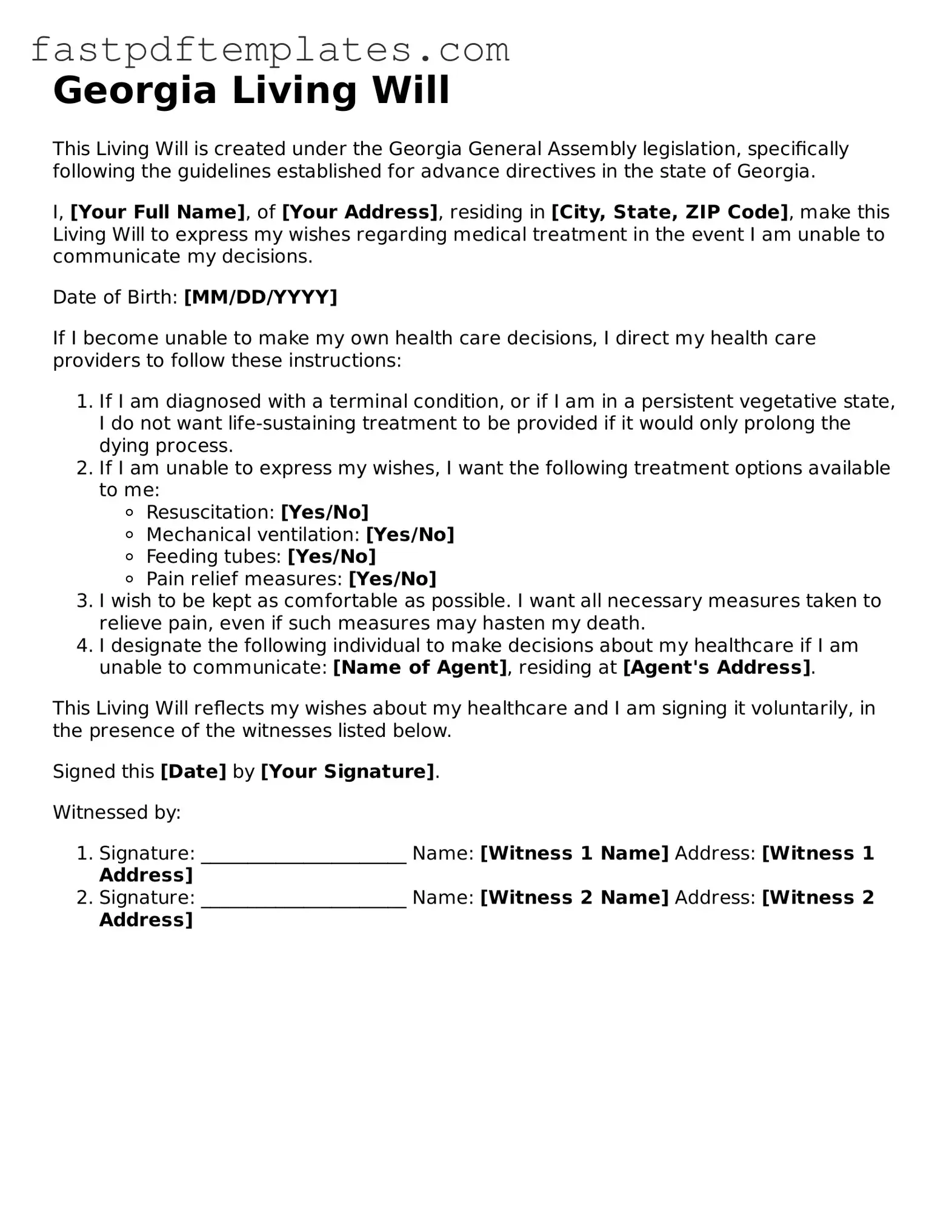Attorney-Approved Georgia Living Will Document
A Georgia Living Will form is a legal document that allows individuals to outline their preferences for medical treatment in the event they become unable to communicate their wishes. This form helps ensure that healthcare providers and loved ones respect a person's choices regarding life-sustaining measures. Understanding its importance can empower individuals to make informed decisions about their future healthcare needs.
Access Document

Attorney-Approved Georgia Living Will Document
Access Document
Your form still needs completion
Complete your Living Will online and download the final PDF.
Access Document
or
Click for PDF Form
